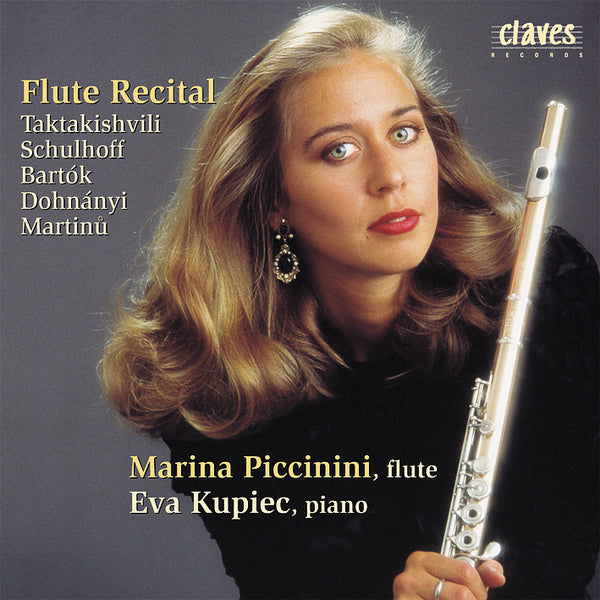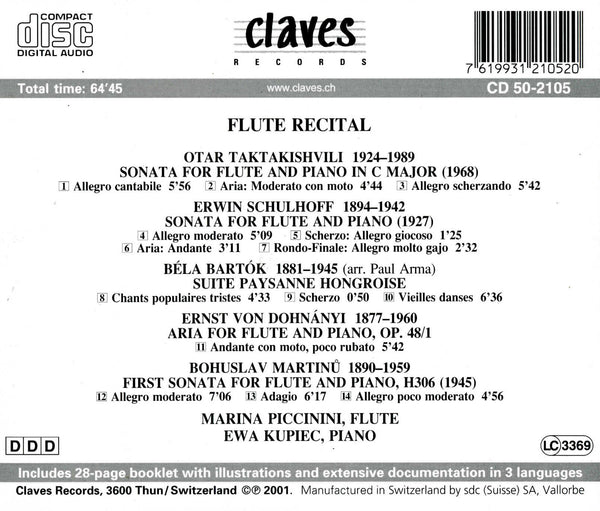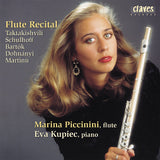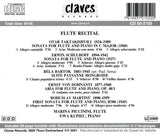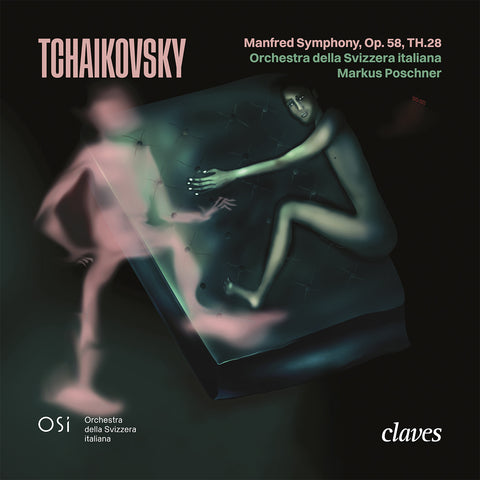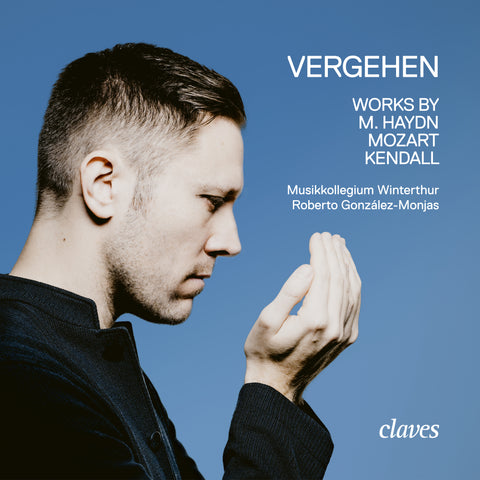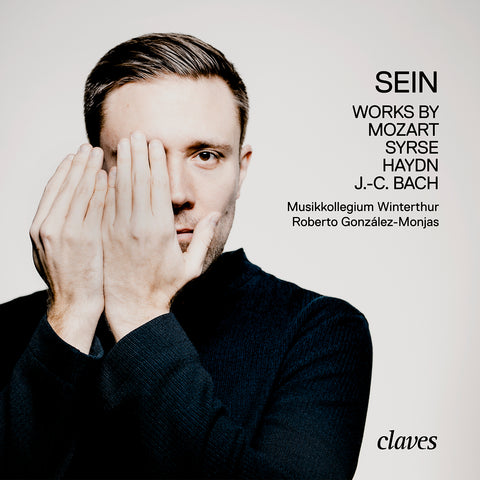(2001) Flute Recital: Eastern Europe 20th Century Music
CD set: 1
Catalog N°:
CD 2105
Release: 2001
EAN/UPC: 7619931210520
- UPC: 829410506861
This album is now on repressing. Pre-order it at a special price now.
CHF 18.50
This album is no longer available on CD.
This album has not been released yet. Pre-order it from now.
CHF 18.50
This album is no longer available on CD.
CHF 18.50
VAT included for Switzerland & UE
Free shipping
This album is no longer available on CD.
VAT included for Switzerland & UE
Free shipping
This album is now on repressing. Pre-order it at a special price now.
CHF 18.50
This album is no longer available on CD.
This album has not been released yet.
Pre-order it at a special price now.
CHF 18.50
This album is no longer available on CD.
CHF 18.50
This album is no longer available on CD.
FLUTE RECITAL: EASTERN EUROPE 20TH CENTURY MUSIC
Following the acclaimed release of her first recording for Claves, Flute Recital «Belle Epoque», virtuoso Marina Piccinini now presents a recording featuring brilliant works from the 20th century for flute and piano with an accent on Eastern Europe.
While the flute may have evoked ancient Greece or a brilliant salon for the French school of composers, in Eastern Europe it has always been a folk instrument, and that aspect predominates in this recording. It is true that the works titled «Sonata» by Taktakishvili and Martinu are models of neoclassical sonata form, but under their traditional forms and balanced themes beats the heart of a culture that is rooted well east of Vienna.
Paul Arma’s setting of Béla Bartók’s 15 Hungarian Peasant Songs captures all the moods of his teacher’s collection ranging from tender to whimsical to lively to nostalgic. Erno von Dohnányi’s Aria for Flute and Piano is redolent with the sensuous sounds of Borodin or Rachmaninov, an amorous nocturne. And Erwin Schulhoff’s Sonata for Flute and Piano, composed in 1927, combines the insouciant air of the Parisian «Six» with a genuine affection for Czech tunes and rhythms.
Flutist Marina Piccinini is widely recognized as one of the world’s leading young flute virtuosos. She combines flawless technical command, profound interpretive instincts and a charismatic stage presence – qualities that make each of her performances a memorable event. In the words of Bernard Holland, chief music critic for The New York Times, Ms. Piccinini is «...an absolutely first-rate player... a musician who hears and understands with great intelligence».
(2001) Flute Recital: Eastern Europe 20th Century Music - CD 2105
Following the acclaimed release of her first recording for Claves, Flute Recital «Belle Epoque», virtuoso Marina Piccinini now presents a recording featuring brilliant works from the 20th century for flute and piano with an accent on Eastern Europe.
While the flute may have evoked ancient Greece or a brilliant salon for the French school of composers, in Eastern Europe it has always been a folk instrument, and that aspect predominates in this recording. It is true that the works titled «Sonata» by Taktakishvili and Martinu are models of neoclassical sonata form, but under their traditional forms and balanced themes beats the heart of a culture that is rooted well east of Vienna.
Paul Arma’s setting of Béla Bartók’s 15 Hungarian Peasant Songs captures all the moods of his teacher’s collection ranging from tender to whimsical to lively to nostalgic. Erno von Dohnányi’s Aria for Flute and Piano is redolent with the sensuous sounds of Borodin or Rachmaninov, an amorous nocturne. And Erwin Schulhoff’s Sonata for Flute and Piano, composed in 1927, combines the insouciant air of the Parisian «Six» with a genuine affection for Czech tunes and rhythms.
Flutist Marina Piccinini is widely recognized as one of the world’s leading young flute virtuosos. She combines flawless technical command, profound interpretive instincts and a charismatic stage presence – qualities that make each of her performances a memorable event. In the words of Bernard Holland, chief music critic for The New York Times, Ms. Piccinini is «...an absolutely first-rate player... a musician who hears and understands with great intelligence».
Return to the album | Main Artist: Marina Piccinini













